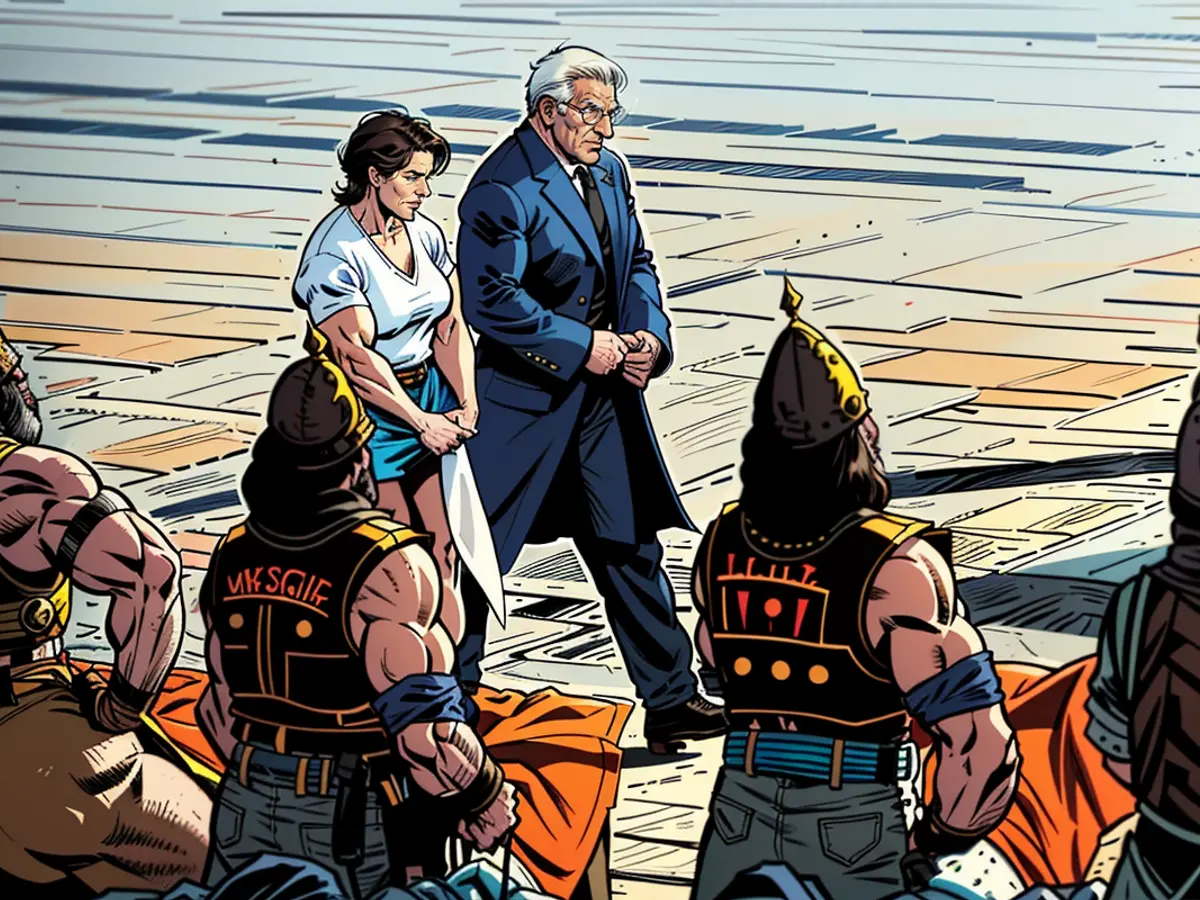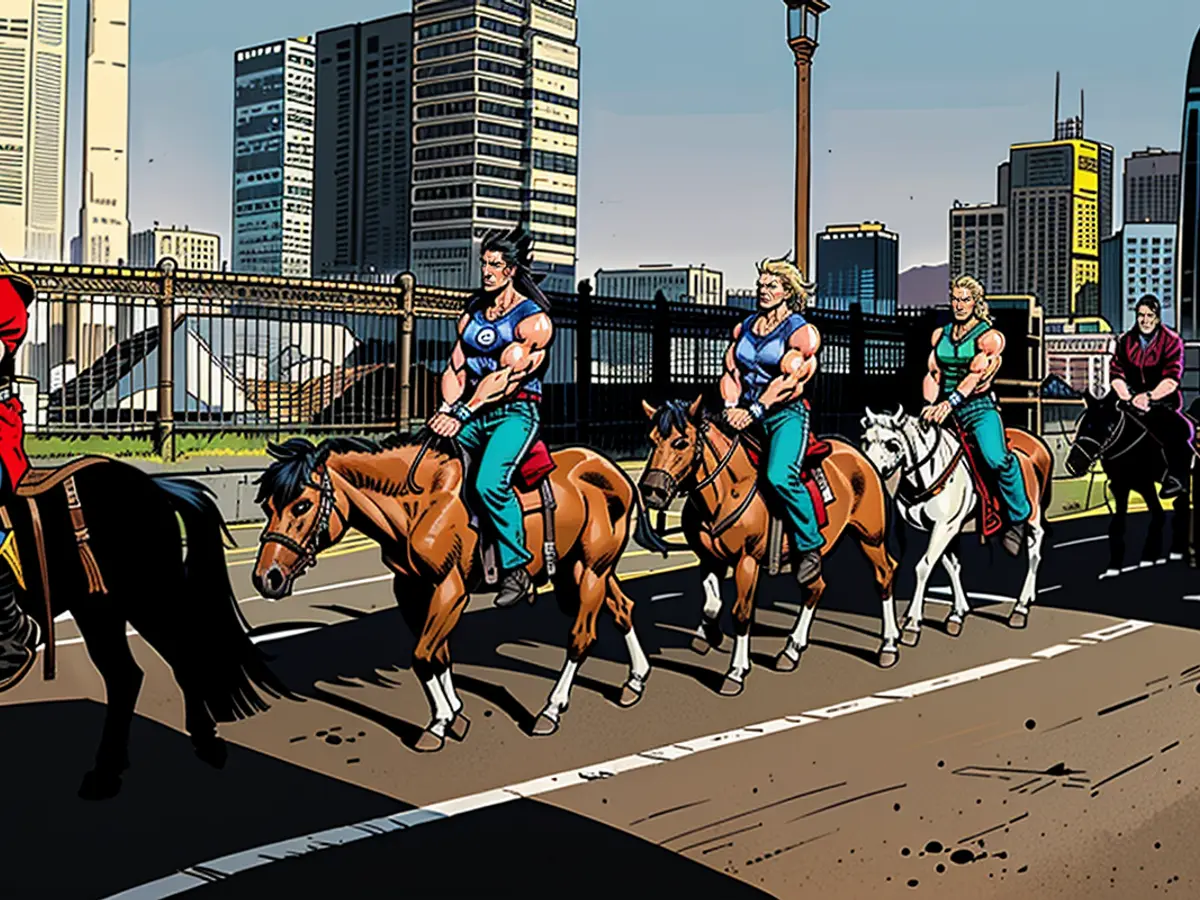Nation navigating delicate international balancing act
Controversies brew between Russia and China in Mongolia's democratic endeavors, with the West often serving as a balancing force. This June, Mongolia's parliamentary elections promise significant shifts in its political landscape, with novel rules and age-old tactics adding an air of unpredictability.
With a territory 4.5 times that of Germany but just 3.5 million inhabitants, Mongolia stands tall as a democratic force amidst autocratic giants China and Russia. Thus, global powers such as the EU and Germany should pay heed to these elections, as Mongolia's internal politics may well have repercussions on regional stability.
Mongolia's legislative system is modernizing with a move to a mixed member proportional representation system, and an expansion of parliament from 76 to 126 seats. Proponents of these changes champion improved representation, higher standards of transparency, and fairer politics – expectations that the international community, including China and Russia, will strive to influence.
However, cynics voice concerns about the enduring dominance of established political elites. Optimism for the upcoming elections is tepid, overshadowed by lingering corruption allegations and reduced media freedom over recent years. Yet, there's a glimmer of hope that these antiquated structures will shatter. The international community, including German political institutions, plays a supporting role alongside ongoing structural reforms.
The Two Adversaries and the "Third Neighbor"
Democracy in the region faces innumerable challenges. Nevertheless, over 70% of the population considers democracy the right path. Mongolian leaders cannot disregard this sentiment, for it potentially jeopardizes social harmony and unity.
With China and Russia as the sole neighbors and no access to the sea, Mongolia's geopolitical location is uniquely intricate. The nation skillfully navigates diplomacy with these two powers without submitting to their interests too fully.
Following Russia's invasion of Ukraine, the Mongolian government took a neutral stand while maintaining solid economic and political ties with Russia, adhering to Western sanctions. Simultaneously, relations with China were deepened, extracting economic benefits. This enhanced dependency: In 2023, approximately 93% of all exports headed to China. The "Third Neighbor," or the international community, principally the West, acts as a factor to aid Mongolia's economic diversification and strengthen its international ties.
Mongolia Cannot Wholly Embrace the West
Despite Russia's actions in Ukraine and the resulting international law contraventions, international law remains instrumental in Mongolia's pursuit of safeguarding its own sovereignty and independence. Mongolia's neutral stance in the Ukraine conflict is not viewed as inconsistent but as proof of its own astute foreign policy. International law may hold merit, but real-world circumstances take precedence. Mongolian politics remain acutely aware of their own circumstances.
The EU and Germany have recently intensified their rapprochement with Mongolia, backing Mongolia's democratic path. In January 2024, Federal President Frank-Walter Steinmeier paid a visit to Mongolia to commemorate the 50th anniversary of diplomatic relations between the Federal Republic and Mongolia. During his visit, he highlighted the cooperation between the two countries as strategic. Mongolia, rich in minerals like copper and rare earths, could prove a valuable partner in the de-carbonization of the European economy.
A stable political environment that endorses investment and legal protection is paramount for this purpose. The Europeans bolster this stability through various projects. However, the success of these projects hinges on both political and physical access to Mongolia. Maintaining this relationship is one of the challenges in crafting a balanced foreign policy that reconciles idealistic principles with pragmatic interests.
The parliamentary elections will not liberate Mongolia from its geopolitical predicament. Regardless of the election outcome, Mongolia will not be able to ally fully with the West in the event of a new system conflict. The West must acknowledge that shared values do not necessarily equate to equal-footed foreign policy: it must learn to negotiate contentious differences and support value-aligned nations not just because of, but also despite differences in positions. Above all, this is crucial when these differences, as in Mongolia's case, are explicable.
Author: Viktor Frank leads the Ulaanbaatar, Mongolia-based Representative Office of the Konrad-Adenauer-Foundation

Read also:
Despite Mongolia's supportive stance towards the West following Russia's attack on Ukraine, it remains wary of fully aligning with Western interests due to its reliance on both Russia and China as key economic partners. Mongolia's upcoming parliamentary elections may further shape its foreign policy, potentially influencing its relationship with these global powers.
Mongolia has drawn criticism from some quarters for its perceived indecisiveness in condemning China's treatment of Uighur Muslims and Russia's human rights abuses. However, Mongolia maintains that it must balance these concerns with its need to maintain good relations with its neighbors, as well as its commitment to upholding international law.








